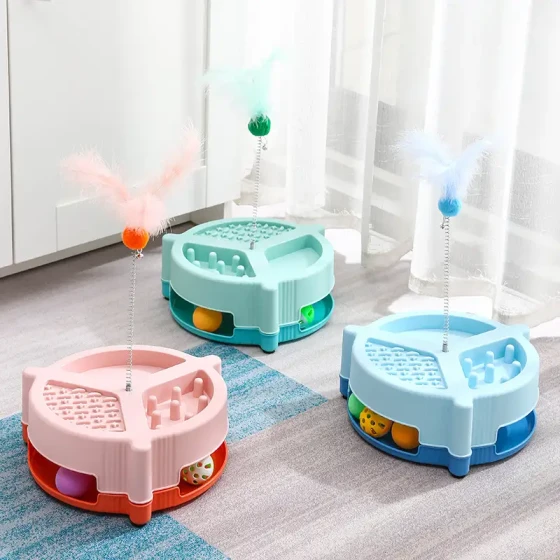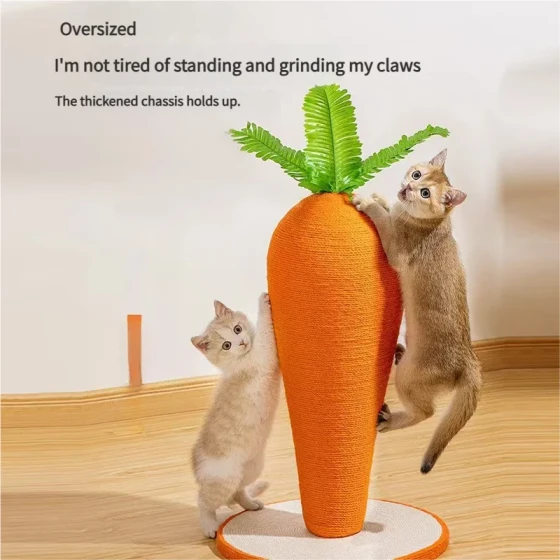What fruits can kittens eat_These fruits are healthy and safe for kittens
Kittens can eat small amounts of certain types of fruits as occasional treats, but fruits should never replace their comprehensive and balanced daily cat food. For carnivorous cats whose main diet is meat, fruits are not a necessity, and overconsumption may lead to digestive issues and other problems. It is essential to understand which fruits are safe and how to feed them in moderation.

Many pet owners are curious if their adorable kittens can also taste some fresh fruit while enjoying delicious fruit themselves. After all, fruits are rich in vitamins and water, which sounds good for health. However, cats’ digestive systems and nutritional needs are entirely different from humans. They are strict carnivores, mainly obtaining essential nutrients like protein, fat, and taurine from meat. Fruits are neither necessary nor a primary energy source for cats. Improper feeding may even pose health risks. Therefore, before feeding any fruit to your kitten, it is crucial to know which fruits they can eat, which are forbidden, and the importance of moderation.
Types of fruits kittens can safely eat
If you want to give your kitten a bit of fruit as an occasional treat or snack, the following fruits are generally considered relatively safe, but only in small amounts and properly prepared:
- Strawberries: Strawberries contain some vitamin C and antioxidants but also contain a relatively high amount of sugar. You can feed your kitten a small piece of fresh strawberry without the stem, about the size of a fingernail.
- Blueberries: Blueberries are another fruit rich in antioxidants. They are small in size and can serve as tiny treats. Similarly, only one or two can be given, and do not give too many.
- Watermelon: On hot days, seedless watermelon can help replenish water for cats. Be sure to remove all seeds and rind, and only feed a small piece of fruit flesh. Although watermelon is high in water content, its sugar content is also not low, so strictly control the portion.
- Hami melon/Cantaloupe: Similar to watermelon, properly seeded and peeled Hami melon flesh can also be given in small amounts. They contain water but the sugar content needs attention.
- Apple: Apples are rich in fiber and vitamins, but apple seeds and cores are toxic to cats because they contain cyanide. If you want to feed apples to a cat, completely remove seeds and cores, only offer a small piece of flesh, and it's better to peel it (some cats may have difficulty digesting the peel).
- Banana: Bananas are rich in potassium but contain a very high amount of sugar and starch, which is difficult for cats to digest. A very tiny amount (like the size of a grain of rice) as an occasional trial may not be a problem, but generally not recommended to feed.
Important reminder: Even these “safe” fruits are only “edible but not essential and should be fed in small quantities” for cats. Many cats may not be interested in fruit or may experience gastrointestinal discomfort such as vomiting or diarrhea after eating.
Which fruits are potentially dangerous or toxic to kittens?
Some fruits are absolutely forbidden for cats, and pet owners must remember:
- Grapes and raisins: Grapes and raisins can cause potential kidney toxicity in both cats and dogs, and even small amounts may lead to acute kidney failure. This is very dangerous, so never feed cats any grapes or grape-related products.
- Citrus fruits (oranges, lemons, grapefruits, etc.): The flesh, peel, seeds, and leaves of citrus fruits contain citrus oils and psoralen compounds, which are toxic to cats and may cause digestive problems, vomiting, diarrhea, or even more severe symptoms.
- Cherries: Cherry pits, stems, and leaves contain cyanide and are toxic to cats. Although the fruit flesh is less toxic, it is generally not recommended to take the risk of feeding cherries.
- Avocado: Avocado contains the toxin “Persin,” which may cause vomiting and diarrhea in cats. Although cats might be less sensitive to Persin than birds and rabbits, for safety, it is best to avoid feeding avocado.
General principles for feeding fruits to kittens
If you decide to let your kitten try a small amount of safe fruit, be sure to follow these principles:
- Feed only in small amounts: This is extremely important. Fruits can only be extremely small snack amounts, with total intake not exceeding 10% of the kitten’s daily food consumption, or even less. Remember, their main diet must be professional kitten food.
- Proper preparation: Thoroughly wash fruits, remove all seeds, cores, stems, and peel (unless confirmed safe and easily digestible). Cut the fruit flesh into very small pieces to facilitate eating and digestion.
- Observe reactions: After feeding any new fruit for the first time, closely observe your kitten for 24-48 hours for vomiting, diarrhea, loss of appetite, or other abnormal symptoms. If any discomfort occurs, stop feeding immediately and consult a veterinarian.
- Not a necessity: To emphasize again, fruits are not essential for cats. Professional kitten food already provides all the nutrients they need. Do not force-feed fruits to make their nutrition “richer.”
- Consult a veterinarian: If you are unsure whether a fruit is safe or if your kitten has specific health problems, it’s best to consult a professional vet before feeding any fruit.
Frequently Asked Questions
Q: Can kittens eat fruits every day?
A: No. Fruits are only occasional treats for kittens and should never be fed daily. Long-term or excessive consumption may lead to nutritional imbalance and digestive problems.
Q: Why do cats like certain fruits, such as watermelon?
A: Cats do not have sweet taste buds and usually do not like fruits because they are “sweet.” They may be attracted to the texture, moisture, or smell of fruits. For example, the high water content in watermelon may attract some cats.
Q: Are there nutritional benefits of fruits for kittens?
A: Some fruits do contain vitamins, antioxidants, and water, but kittens can get these nutrients fully from high-quality kitten food. The sugar in fruits may actually pose a health burden. Therefore, the benefits of fruit for cats are minimal or negligible.
Q: What should I do if my kitten accidentally ate unsafe fruit?
A: Immediately contact a veterinarian and inform them what fruit, how much was eaten, and roughly when. The vet will provide professional advice or treatment based on the situation. Do not try to induce vomiting or use folk remedies yourself.
Summary
In summary, kittens can occasionally and in small amounts try some specific fruits, such as seedless and peeled watermelon, blueberries, or a small piece of strawberry. But this must be under the premise of safety and proper preparation, and fruits must never be part of their daily diet. Grapes, raisins, citrus fruits, and cherries are toxic to cats and must be strictly avoided. Always remember, professional kitten food is the best choice to ensure healthy growth, and fruits are just optional “desserts”—and for cats who lack sweet taste buds, may not even qualify as “desserts.” When in doubt, consulting your vet is always the wisest choice.





-560x560.webp)